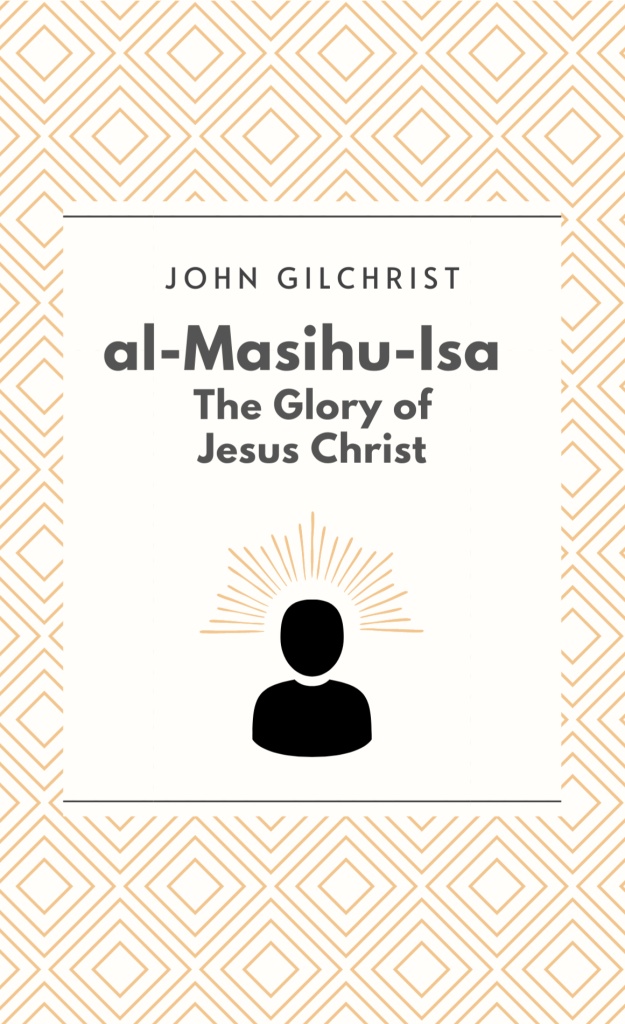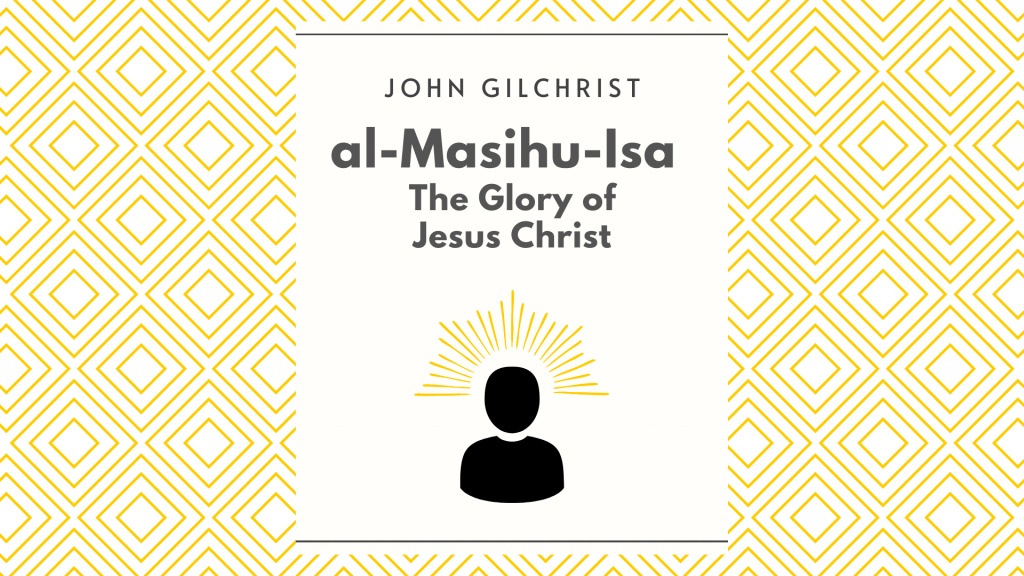What do You Think, Whose Son is He?
Al-Masihu-Isa: The Glory of Jesus the Messiah


Chapters
« Ch. 5 - Jesus of Nazareth: God's Anointed Messiah
Among the many prophecies of the coming Messiah were regular promises that he would be descended from David, the great prophet and king who foreshadowed his coming in many ways. A distinct prophecy of this kind was given to the prophet Jeremiah some six hundred years before Jesus was born. Although the elders of Israel turned away from leading the nation in God's ways, he promised to send a Deliverer:
"Behold, the days are coming, says the Lord, when I will raise up for David a righteous Branch, and he shall reign as king and deal wisely, and shall execute justice and righteousness in the land. In his days Judah will be saved, and Israel will dwell securely. And this is the name by which he shall be called: 'The Lord is our righteousness'." Jeremiah 23:5-6.
Once again the prophecy contains hints of the Messiah's glory but, as the Jews could not distinguish between the first coming of the Messiah in comparative obscurity and his second coming in a blaze of glory, they failed to identify Jesus as the one promised when he came. But they got one thing right - the Messiah would be descended from David. A very similar prophecy appears in Jeremiah 33:14-18 and also in Ezekiel 34:24, where David is openly identified as the forerunner and type of God's supreme shepherd and prince to come.
The most emphatic promise of the coming Messiah as one of the sons of David, however, was made to David himself. During his great reign as king over Israel David sought to build a great temple to house the ark of the covenant of God. Through the prophet Nathan, however, God stopped him from doing so, at the same time making this promise to him:
"Moreover I declare to you that the Lord will build you a house. When your days are fulfilled to go to be with your fathers, I will raise up your offspring after you, one of your own sons, and I will establish his kingdom. He shall build a house for me, and I will establish his throne for ever. I will be his father, and he shall be my son; I will not take my steadfast love from him, as I took it from him who was before you, but I will confirm him in my house and in my kingdom for ever and his throne shall be established for ever." 1 Chronicles 17:10-14.
When Solomon, David's son, duly built a great Temple for God (known in Islam as baitul-muqaddas, "the holy house", and spoken of in Quran 17.7 as al-masjid - "the Temple"), it seemed that the prophecy had been fulfilled. Nevertheless, shortly after Solomon's death the kingdom of Israel was split in two and within three hundred years fell away completely, Solomon's temple being destroyed in the process.
The Jews then realised that God had, in fact, been speaking ultimately of the Messiah as the prophecy had been couched in eternal language - "I will establish his throne for ever ... I will confirm him in my house and in my kingdom for ever and his throne shall be established for ever" (1 Chronicles 17:12,14). God had clearly spoken of his Supremely Anointed One who would establish his kingdom and rule it for ever. Solomon and his temple were clearly only shadows and types of the Messiah and his kingdom to come. "One of your own sons", therefore was to be applied ultimately to David's "greater son" yet to come, the Messiah, who would be descended from David's line. As a result the Jews coined the express "Son of David" as a title for their coming Messiah and often used it of him to identify the line of offspring from which he would rise. "Has not the scripture said that the Messiah is descended from David, and comes from Bethlehem, the village where David was?" (John 7:42), was the constant belief of the Jews, a belief Jesus Christ fulfilled when he was born of David's line in Bethlehem (Matthew 2:1).
It is recorded in the Gospel of Matthew that about two days before his crucifixion, Jesus engaged in lengthy debate with the Jewish leaders. Firstly the Pharisees and then the Sadduccees tried by every verbal twist and trick to trap him in his talk. At the end of the day, when their efforts were exhausted and they all were standing before him, he finally put a question to them. It was to be the last time he would engage in debate with them. He said to the Pharisees:
"What do you think of the Messiah? Whose son is he?" Matthew 22:42
They promptly answered: "the Son of David", in accordance with the prophecies in their holy scriptures. Jesus then replied to them:
"How is it then that David, inspired by the Spirit, calls him Lord, saying, 'The Lord said to my Lord, Sit at my right hand, till I put thy enemies under thy feet'? If David thus calls him Lord, bow is he his son?" Matthew 22:43-45.
David, said Jesus, called the Messiah his Lord and Master, how then could he be David's son? What man looks on his son as his lord and master? We read that "no one was able to answer him a word, nor from that day did any one dare to ask him any more questions" (Matthew 22:46). This momentous question ended all debate between Jesus and the Jews.
Any Jew in the crowd who had been awake, however, could have given a very complete answer to the question. Let us go back to the prophecy Nathan gave David that one of his sons would establish his throne forever and ever. We have read it already, but let us now repeat the key words of God to David. He said of the Messiah who would be descended from him:
"I will be his father, and he shall be my son." 1 Chronicles 17:13
I will be his Father and he shall be my Son, God said to David - a prophecy contained to this day in the scripture of the Jews, a people who no more believe that Jesus is the Son of God than Muslims do. Yet there it is, right in their scripture. Any discerning Jew could have said, in answer to Jesus' question, "What do you think of the Messiah, whose son is he?" (Matthew 22:42) - "he is the Son of God", for so God had spoken to David. This is why David called the Messiah his Lord, for he knew that although he would be descended from him, God would be his true Father and he would be God's Son. He might well have said, as John did, "After me comes a man who ranks before me, for he was before me" (John 1:30).
David knew that the Messiah would be the Son of God and therefore openly called him his Lord and Master. "The Lord said to my Lord" to David meant simply "The Father says to his Son, sit at my right hand till I put thy enemies under thy feet." In one of the great Psalms of old God spoke of the coming glory of the Son of David at his second advent at the end of time:
"He shall cry to me, 'Thou art my Father, my God, and the Rock of my salvation'. And I will make him the first-born, the highest of the kings of the earth. My steadfast love I will keep for him forever, and my covenant will stand firm for him. I will establish his line forever and his throne as the days of the heavens ... Once for all I have sworn by my holiness; I will not lie to David. His line shall endure for ever, his throne as long as the sun before me." Psalms 89:26-29, 35-36.
No one but the Son of God could so boldly address the Lord of heaven and earth. Bedded into the glorious predictions of the coming Messiah, who would rule the kingdom of God for ever and ever, are clear statements that he would be God's own Son. The promises to this effect came directly from God himself. The Messiah, God's Supremely Anointed One, would far surpass the prophets in glory and majesty because he would be no less than the Son of God himself.
Jesus himself gave the answer to his own question how the Messiah could be both the Lord and the Son of David at one and the same time. In the last great book of the Bible and at the very end of the book Jesus made this bold declaration:
"I am the root and the offspring of David, the bright morning star." Revelation 22:16
Because be was David's offspring he could indeed be called his son, but he was also his root and was therefore rightly called his Lord. In effect Jesus was saying "I am indeed the Son of David, his offspring, for I am descended from him. But ultimately I am his root, for he came originally from me." We have already seen that a host of prophecies spoke of the Messiah as one who would come from "ancient days", from the beginning of the world. How gloriously the exalted status of Jesus the Messiah is described in these words:
"He is the image of the invisible God, the firstborn of all creation; for in him all things were created, in heaven and on earth, visible and invisible, whether thrones or dominions or principalities or authorities - all things were created through him and for him. He is before all things and in him all things hold together." Colossians 1:15-16.
"The world was made through him", another scripture says (John 1:10), and in this way he could truly be said to be the Root of David (Revelation 5:5), his ultimate Lord and Master. "What do you think of the Messiah, whose son is he?" Jesus asked the Jews, a final, climactic charge at the end of is public confrontation with them. Its significant timing makes it universal for all men in all ages. What do you think of him - whose son is he really? Moses wrote of him (John 5:46), Abraham rejoiced to see his day (John 8:56), and David called him his Lord (Matthew 22:45), Jesus declared. If such great prophets as these recognised that his coming would herald the arrival of God's Supreme Ruler and Saviour, should not all men bow before him even now and become heirs of the hope of eternal life, which is in him, and partakers of the glory which is to be revealed when he, Jesus the Messiah, returns to bring forth the kingdom of God over which he will rule for ever?
We have now seen who the Messiah really was. We must press on and conclude with a study of what he came to do at his first coming and what be will achieve at his return at the end of time